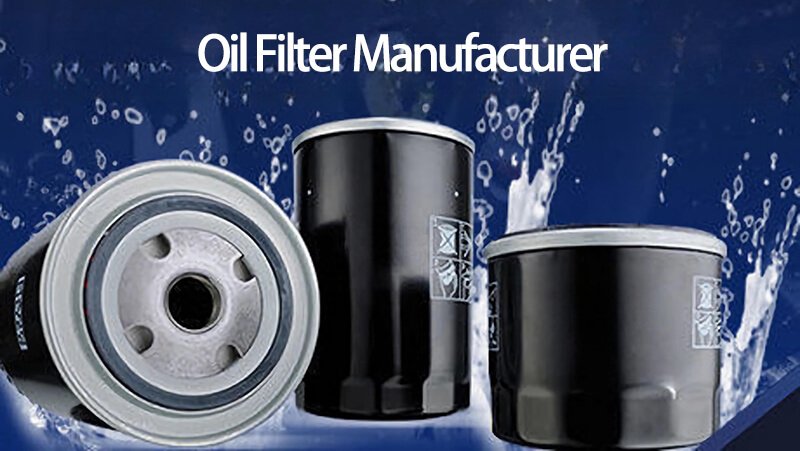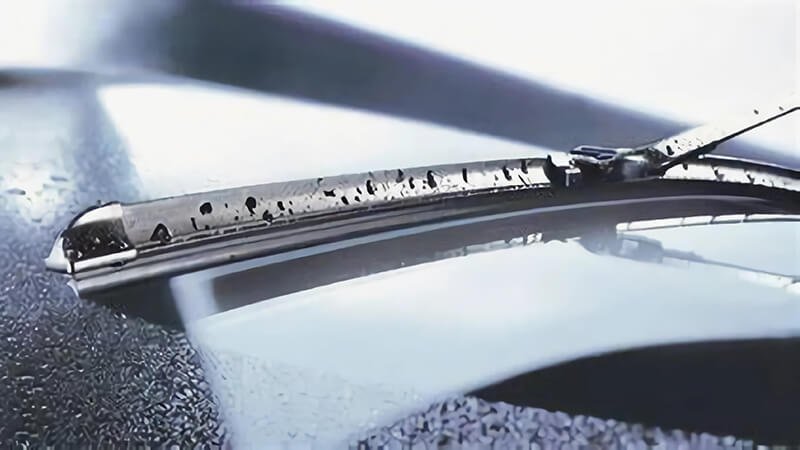Fuel filters are an essential component in the operation of your vehicle’s engine. However, many people overlook their importance until problems arise. In this article, I’ll explain what fuel filters are, why they are crucial for your vehicle, and the risks of ignoring them.
Fuel filters prevent dirt and debris from entering your engine, which can damage its parts and lead to poor performance. Keeping your fuel filter clean is vital for the smooth operation of your vehicle and to ensure long-term engine health.
To understand fuel filters better, let’s dive into some key questions: What happens if the fuel filter is not changed? Do fuel filters really make a difference? How often should they be replaced? And what symptoms should you look for if the filter is going bad?

What happens if the fuel filter is not changed?
Fuel filters play a crucial role in keeping your engine running smoothly. But what happens if they aren’t changed when they need to be? Neglecting to replace a clogged or dirty fuel filter can lead to serious consequences.
If the fuel filter isn’t changed, dirt and debris can clog the filter, affecting the fuel flow to the engine. This can result in poor engine performance, starting issues, and even engine damage over time.
Not changing the fuel filter when needed can have a variety of negative effects on your vehicle’s performance. Over time, the fuel filter accumulates dirt, rust, and other contaminants that it filters out from the fuel. If the filter becomes clogged, the flow of fuel to the engine decreases, leading to a range of issues.
Here’s a deeper look at the problems that can occur:
1. Reduced Engine Performance1
When the fuel filter is clogged, the fuel flow to the engine is restricted. This can result in reduced engine performance, causing hesitation when accelerating, stalling, and sluggish driving. You may notice that the car doesn’t respond as quickly when you press the accelerator, which is a sign that the engine is not receiving the fuel it needs to operate efficiently.
2. Difficulty Starting the Engine2
A clogged fuel filter can also cause trouble starting the engine. If the filter restricts the fuel flow too much, the engine might not get enough fuel to start, causing it to turn over slowly or not start at all. This issue is often exacerbated in colder weather when fuel tends to thicken and flow more slowly.
3. Damage to the Fuel Pump3
If the fuel filter is clogged, the fuel pump has to work harder to push fuel through the filter and into the engine. Over time, this added strain can cause the fuel pump to wear out prematurely, leading to costly repairs. Replacing a fuel pump can be a much more expensive fix than simply replacing the fuel filter.
4. Engine Misfires4
A clogged fuel filter can also lead to misfires, as the engine may not receive the proper amount of fuel at the right time. Misfires can cause jerky acceleration, rough idling, and poor fuel economy. Additionally, repeated misfires can damage other engine components, exacerbating the problem.
To prevent these problems, it’s important to change your fuel filter regularly. This simple maintenance step can help avoid more costly repairs and ensure that your vehicle runs smoothly.
Table: Effects of Not Changing a Fuel Filter
| Problem | Description | Potential Consequence |
|---|---|---|
| Reduced Engine Performance | Restricted fuel flow leads to hesitation and sluggish driving. | Poor acceleration, stalling, poor driving experience. |
| Difficulty Starting | Insufficient fuel supply causes trouble starting the engine. | Engine turns over slowly or fails to start. |
| Damage to Fuel Pump | A clogged filter causes the fuel pump to work harder, leading to wear. | Premature fuel pump failure, costly repairs. |
| Engine Misfires | Inconsistent fuel supply causes improper combustion. | Engine jerks, rough idling, damage to engine parts. |
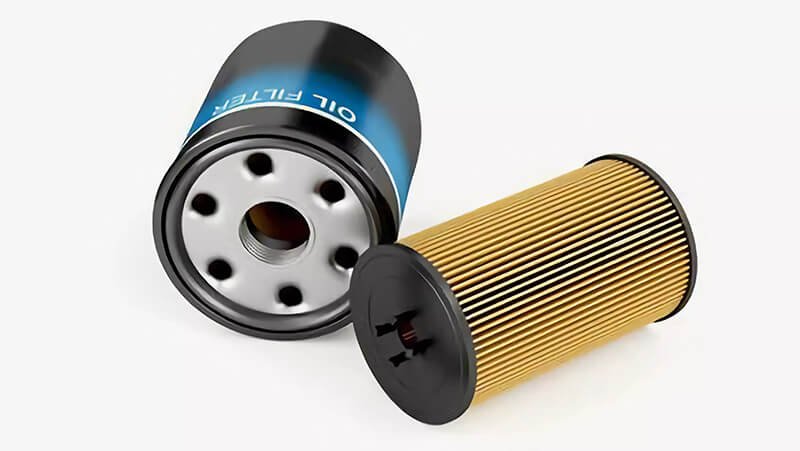
Do fuel filters make a difference?
Fuel filters are often seen as minor components, but do they really make a difference in how your car performs? Let’s take a closer look at their impact on the overall health of your engine.
Fuel filters make a significant difference by ensuring that clean fuel reaches your engine. They protect the engine’s fuel system from contaminants, improving fuel efficiency, and extending the life of your engine and its parts.
Fuel filters may seem like small, insignificant parts of your vehicle, but their impact is much more significant than most people realize. They protect your engine from harmful contaminants and ensure that the engine runs smoothly. Let’s explore in detail how fuel filters improve your vehicle’s overall performance:
1. Improved Fuel Efficiency5
Fuel filters help to maintain the quality of the fuel entering the engine. By removing dirt, rust, and other impurities, they prevent these particles from clogging the injectors and combustion chamber. Clean fuel leads to better combustion, which results in improved fuel efficiency. This means you’ll get more miles per gallon, saving you money at the pump.
2. Prevent Engine Damage6
The fuel filter protects the engine by preventing debris and contaminants from entering the fuel system. Without a properly functioning fuel filter, harmful particles can reach the injectors, fuel pump, and the engine itself. Over time, this can cause significant damage to these parts, leading to expensive repairs and reduced engine life.
3. Better Engine Performance7
With clean fuel, the engine can perform at its best. Fuel filters contribute to smoother acceleration, quieter engine operation, and better overall performance. A clogged filter disrupts the fuel supply, causing hesitation, stalling, and rough idling. By ensuring that the fuel supply is clean, the filter allows the engine to run efficiently.
4. Cost Savings8
While fuel filters need to be replaced regularly, doing so can help you save money in the long run. By maintaining the health of your engine and improving fuel efficiency, fuel filters help avoid costly repairs down the road. The small cost of replacing the filter is far outweighed by the benefits it brings to your car’s performance and longevity.
Table: Benefits of Fuel Filters
| Benefit | Description | Long-Term Impact |
|---|---|---|
| Improved Fuel Efficiency | Fuel filters remove contaminants, allowing for better combustion. | More miles per gallon, lower fuel costs. |
| Prevent Engine Damage | Filters prevent harmful debris from entering the engine and fuel system. | Longer engine life, fewer repairs. |
| Better Engine Performance | Clean fuel ensures smoother operation and improved engine performance. | Reduced hesitation, smoother acceleration. |
| Cost Savings | Regular replacement of fuel filters prevents more expensive engine repairs. | Lower maintenance costs in the long run. |
Fuel filters are not just a minor detail – they are essential for the smooth operation and longevity of your vehicle. Regularly replacing the filter ensures that your car runs efficiently and that your engine stays protected from harmful contaminants.
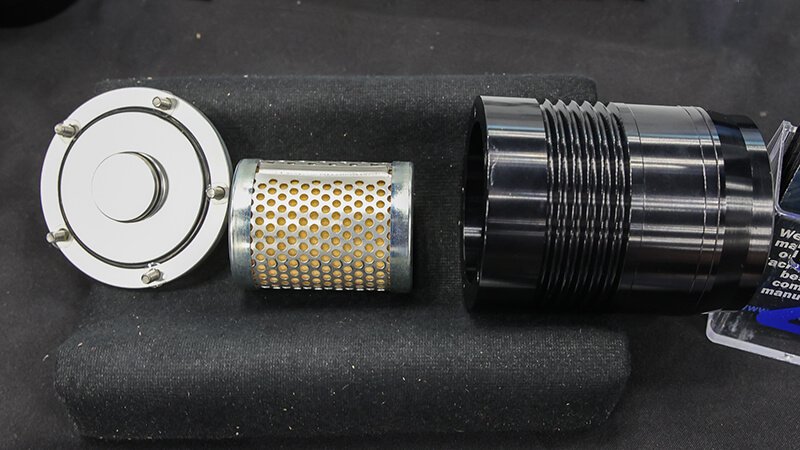
How often should a fuel filter be changed?
One of the most common questions regarding fuel filters is how often they should be changed. Let’s dive into the recommended timelines and factors that can influence how often you need to replace your fuel filter.
Generally, fuel filters should be replaced every 20,000 to 40,000 miles. However, driving conditions, fuel quality, and the make of your vehicle can affect how frequently you need to replace the filter.
The frequency with which you should replace your fuel filter depends on a variety of factors, including your vehicle’s make and model, the type of fuel you use, and the driving conditions. Let’s break it down:
1. Manufacturer Recommendations9
Most car manufacturers recommend changing the fuel filter every 20,000 to 40,000 miles. This recommendation is based on average driving conditions and the general performance of the fuel filter. However, it’s always a good idea to check your vehicle’s owner’s manual for the specific recommendation for your make and model.
2. Driving Conditions10
If you regularly drive in stop-and-go traffic or in dusty, polluted environments, your fuel filter may need to be replaced more frequently. Driving in such conditions causes the filter to work harder, as it needs to filter out more dirt and debris. On the other hand, if you mostly drive on highways or in cleaner environments, the filter will last longer.
3. Fuel Quality11
The quality of fuel you use can also impact how often the fuel filter needs to be changed. If you use high-quality, clean fuel, the filter will have less work to do. However, using low-quality fuel with higher levels of contaminants can clog the filter more quickly, requiring more frequent replacements.
4. Signs of a Clogged Filter12
If you notice symptoms like difficulty starting the engine, engine misfires, or reduced acceleration, it may be time to replace the fuel filter, even if you haven’t reached the recommended mileage. These signs indicate that the filter is not doing its job effectively and could be restricting fuel flow.
Table: Factors Influencing Fuel Filter Replacement
| Factor | Recommended Action | Impact on Frequency |
|---|---|---|
| Manufacturer Recommendations | Follow the vehicle's manual for replacement intervals. | Typically every 20,000-40,000 miles. |
| Driving Conditions | Replace more often if driving in stop-and-go traffic or polluted areas. | Shorter replacement cycle. |
| Fuel Quality | Use high-quality fuel for fewer replacements. | Longer replacement cycle with good fuel. |
| Signs of Clogged Filter | Replace if you experience starting issues, misfires, or poor acceleration. | Immediate replacement needed. |
To ensure optimal engine performance and avoid potential issues, it’s best to follow the manufacturer’s guidelines and replace the fuel filter at regular intervals. Keeping track of your fuel filter’s condition can help you maintain a smooth-running engine for years to come.

What are the symptoms of a bad fuel filter?
A bad fuel filter can cause a variety of issues with your vehicle. Recognizing the symptoms early on can help prevent more serious damage and costly repairs. Let’s look at the most common signs of a bad fuel filter.
Symptoms of a bad fuel filter include engine misfires, poor acceleration, and difficulty starting the vehicle If you experience any of these, it could indicate a clogged or failing fuel filter that needs immediate attention.
A bad fuel filter often leads to several noticeable symptoms that can affect the performance of your vehicle. If you encounter any of the following, it’s time to take a closer look at your fuel filter:
1. Engine Misfires13
One of the most common symptoms of a bad fuel filter is engine misfires. When the filter is clogged, the fuel flow is restricted, which can cause the engine to misfire. This can lead to rough idling, jerky acceleration, and a noticeable loss of power while driving.
2. Poor Acceleration14
If you notice that your car has trouble accelerating or that it’s sluggish when you press the gas pedal, it could be a sign that the fuel filter is clogged. The engine isn’t getting the fuel it needs, causing hesitation and poor acceleration.
3. Difficulty Starting the Engine15
A bad fuel filter can also make it difficult to start the engine. If the filter is clogged, it restricts the fuel flow to the engine, which means the engine might not get enough fuel to start properly. This can cause slow cranking or a complete failure to start.
4. Stalling16
Another symptom of a bad fuel filter is stalling. If the filter is clogged, the engine may stall while driving or at idle. This happens because the fuel flow is interrupted, causing the engine to lose power.
5. Increased Fuel Consumption17
A clogged fuel filter can lead to inefficient fuel combustion, which means your engine has to work harder to perform the same tasks. This can result in increased fuel consumption, causing you to make more frequent trips to the gas station.
Recognizing the symptoms of a bad fuel filter early on can save you from dealing with more serious engine problems later. If you experience any of these issues, it’s time to have your fuel filter checked and replaced if necessary.
Table: Symptoms of a Bad Fuel Filter
| Symptom | Description | What to Do |
|---|---|---|
| Engine Misfires | A clogged filter restricts fuel flow, causing misfires and rough idling. | Replace the fuel filter immediately. |
| Poor Acceleration | Insufficient fuel leads to sluggish or hesitant acceleration. | Check the filter and replace if necessary. |
| Difficulty Starting | A clogged filter causes difficulty starting the engine. | Replace the fuel filter to restore function. |
| Stalling | Restricted fuel flow can cause the engine to stall unexpectedly. | Replace the filter, and check for further issues. |
| Increased Fuel Consumption | Poor fuel combustion due to a dirty filter leads to higher fuel consumption. | Replace the filter and monitor fuel efficiency. |
Recognizing these symptoms and addressing the issue promptly can ensure your vehicle continues running smoothly and avoids major engine damage.
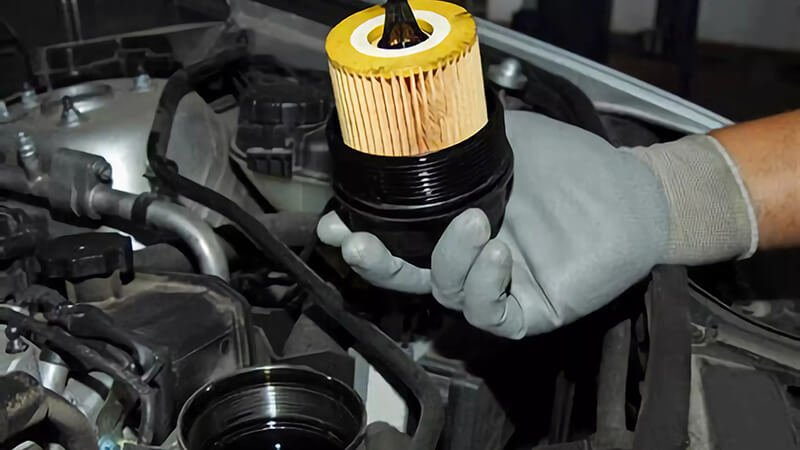
Conclusion
Fuel filters are vital for maintaining the performance and longevity of your vehicle. By understanding their importance, recognizing the symptoms of a bad filter, and following the recommended replacement schedule, you can keep your engine running smoothly and avoid costly repairs. Regular maintenance of your fuel filter ensures that your vehicle stays in top condition for years to come.
-
Learn the common signs of a clogged fuel filter to identify and address the problem promptly. ↩
-
Understand the importance of changing the fuel filter regularly to keep your engine running efficiently. ↩
-
Discover how a clogged fuel filter can restrict fuel flow and impact engine performance. ↩
-
Learn about the causes of engine misfires and how a clogged fuel filter can contribute to the problem. ↩
-
Learn how a fuel filter contributes to better fuel efficiency by keeping the fuel clean. ↩
-
Understand the potential engine damage caused by a failing or clogged fuel filter. ↩
-
Discover how clean fuel ensures smoother engine performance and better responsiveness. ↩
-
Learn how regular fuel filter replacement can help avoid costly engine repairs. ↩
-
Understand manufacturer recommendations for replacing the fuel filter for different car models. ↩
-
Learn how driving conditions impact the frequency of fuel filter replacement. ↩
-
Understand how the quality of fuel impacts the performance and longevity of your fuel filter. ↩
-
Discover the symptoms that indicate a clogged fuel filter and when to replace it. ↩
-
Learn about the reasons behind engine misfires, including how a bad fuel filter can cause this issue. ↩
-
Understand the connection between a clogged fuel filter and poor acceleration in vehicles. ↩
-
Explore how a bad fuel filter can affect the engine's ability to start, and the symptoms to watch for. ↩
-
Discover how a clogged fuel filter can disrupt fuel flow and lead to engine stalling. ↩
-
Learn how a bad fuel filter can affect fuel efficiency and result in higher fuel consumption. ↩

